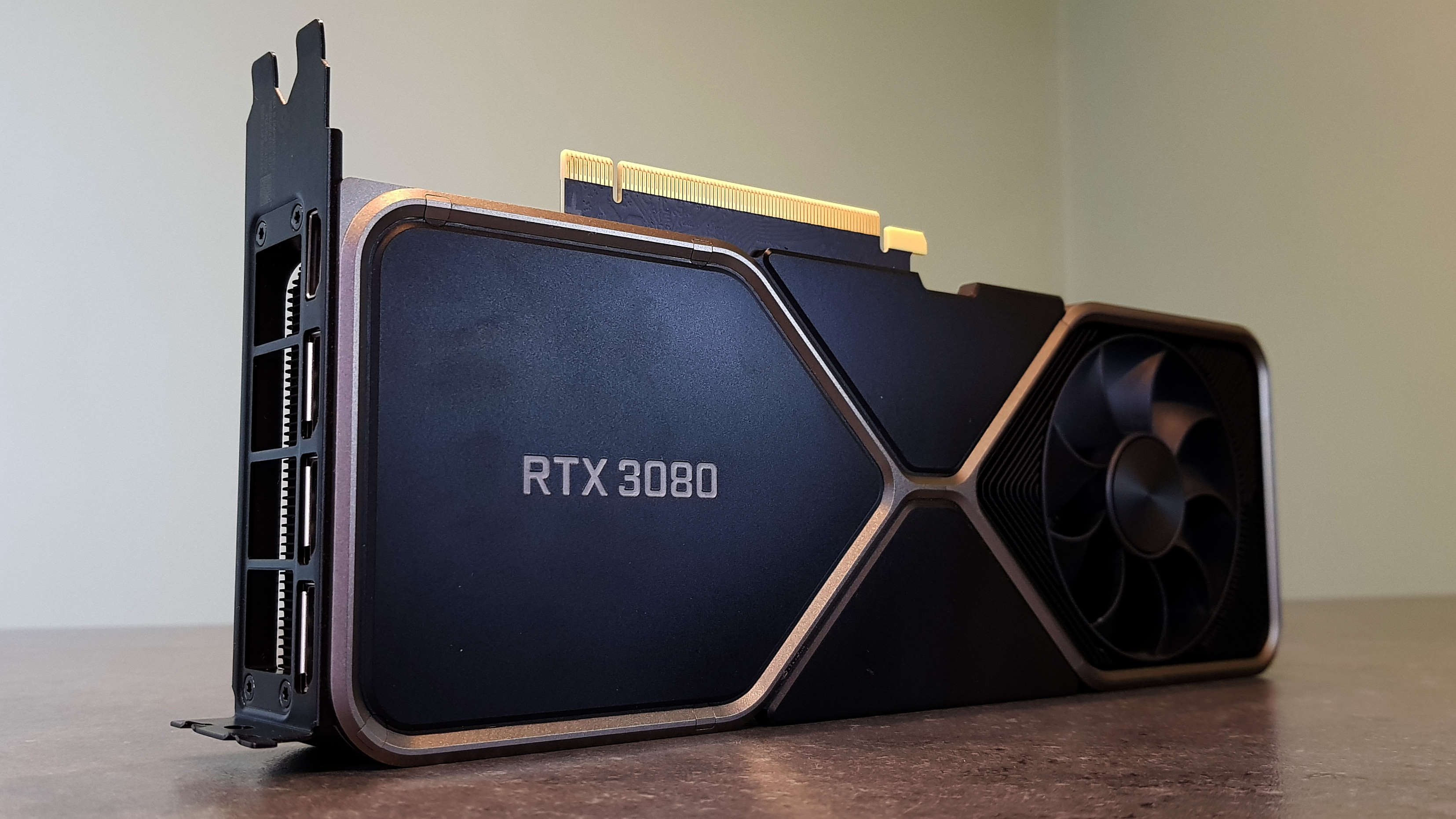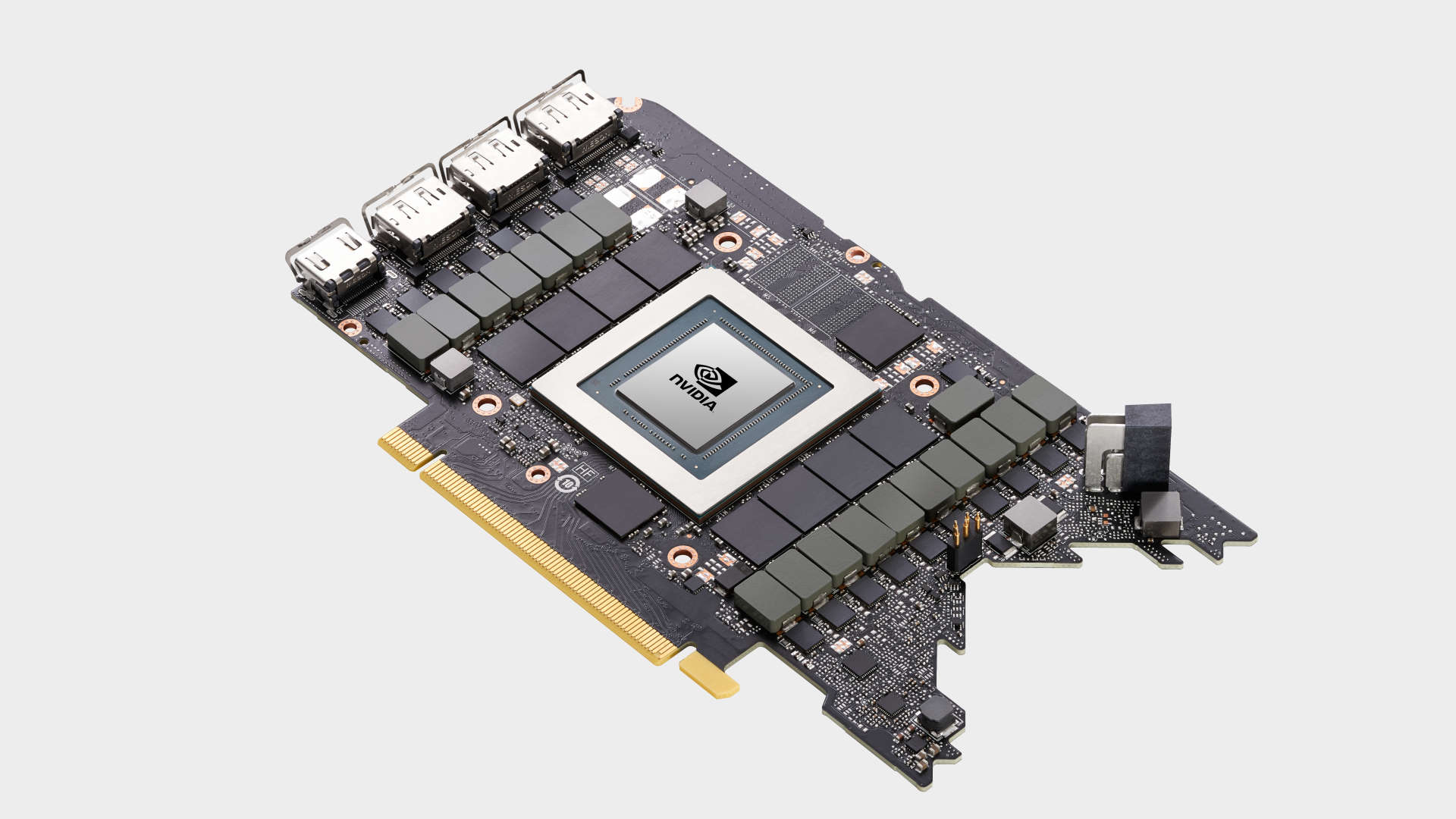I can't get excited for an RTX 3080 12GB, even if Nvidia announces one tomorrow
The often rumoured card is reportedly being announced tomorrow. Though in the midst of a GPU shortage, I find it difficult to be optimistic.

Update: It's January 11, and Nvidia has officially announced the RTX 3080 12GB—follow the link for more.
A rumour that just won't quit in 2022 is that Nvidia is planning to bolster the memory capacity on some of its RTX 30-series graphics cards. These rumours have existed in some form or another since 2020, and even reared their head again as recently as December, though so far no new cards have materialised.
I'll admit, I'm starting to lose hope in the entire affair, yet according to WCCFTech, Nvidia could be planning to make moves as early as tomorrow, January 11.
WCCFTech claims to have spoken to sources that relayed a January 11 announcement date for an Nvidia GeForce RTX 3080 12GB, and that preorders and sales should begin that same day. That would see the card release before the RTX 3050 and RTX 3090 Ti, both of which were announced at CES 2022. The RTX 3080 12GB, however, did not make an appearance during the show.
According to this same report, this graphics card would not only increase memory capacity from 10GB to 12GB, but also incorporate a wider, 384-bit memory bus. That would result in a higher memory bandwidth for the moderately improved card.
Further reported specification adjustments could see CUDA Core counts increase from 8,704 to 8,960, thanks to an increase in SM count from 68 to 70. This would also would see RT Cores increase from 68 to 70.
All of this would reportedly put the RTX 3080 12GB's TDP at around 350W—and a little bit closer to the already too-close-for-comfort RTX 3080 Ti.
Keep up to date with the most important stories and the best deals, as picked by the PC Gamer team.
These improvements over the 10GB RTX 3080 are indeed possible. There are two spare pads for memory chips going free on the RTX 3080 10GB, which could be occupied with two more 1GB GDDR6X chips for 12GB in total. Similarly, the RTX 3080 and RTX 3080 Ti both use the same GA102 GPU, which means greater core counts are within reach.
Though, these upgrades would likely result in just a marginal performance improvement over the 10GB RTX 3080. That's the thing, while an RTX 3080 12GB is absolutely possible, it would be an oddity.
I'm wired to be pessimistic about any tentative release date for these cards after being given the run-around for over a year, but there's more to it than that.
For starters, there are few, if any, RTX 3080 graphics cards available close to the Founder Edition's intended $699 sticker price. A 12GB version wouldn't do anything to change that, unfortunately, as the global semiconductor shortage is wreaking havoc on more than just Nvidia's supply chain.


Best CPU for gaming: the top chips from Intel and AMD
Best graphics card: your perfect pixel-pusher awaits
Best SSD for gaming: get into the game ahead of the rest
That does bring up the question of price, however. Would this be a straight replacement for the pre-existing 10GB model, and therefore offer price parity, or does this necessitate a whole new price point? Micron is going to charge for those two extra memory chips, and Nvidia may use this as an opportunity to charge more for the slightly larger GPU, and those costs could be passed onto the customer.
So price- and performance-wise, I'm not convinced yet of what this card achieves from a customer's point of view. Though I'd love to be surprised by price parity with the 10GB model.
Would it be nice to have another shot at a sudden flurry of stock on launch day, which could be as early as tomorrow? Yes. Is it nice to have more memory? Yes, that too. However, the nihilist in me isn't sure if any of it really matters. Let's wait and see, shall we?

Jacob earned his first byline writing for his own tech blog. From there, he graduated to professionally breaking things as hardware writer at PCGamesN, and would go on to run the team as hardware editor. He joined PC Gamer's top staff as senior hardware editor before becoming managing editor of the hardware team, and you'll now find him reporting on the latest developments in the technology and gaming industries and testing the newest PC components.

